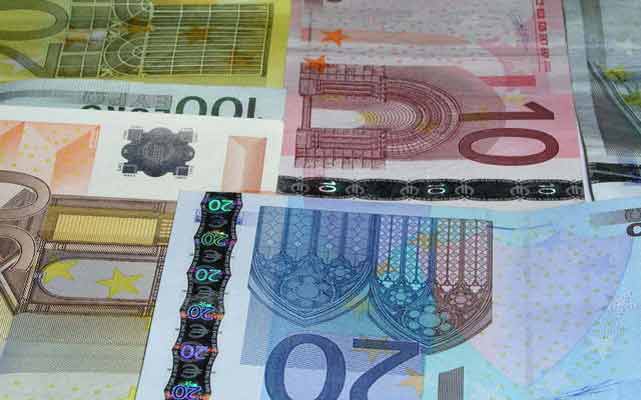British Pound-to-Euro Forecast: Limited GBP Respite vs EUR
- Written by
Ben Hughes

The Pound to Euro exchange rate (GBP/EUR) slipped to one-week lows below 1.1540 on Wednesday but has since staged a modest rebound, trading near 1.1560 on Thursday. The recovery followed stronger-than-expected UK PMI data and improved government borrowing figures, offering Sterling some respite after a weaker start to the week.
Markets were encouraged by signs of resilience in the UK services sector, with business activity reaching its strongest level in a year, even as manufacturing output remained firmly in contraction. At the same time, the Treasury’s latest borrowing figures came in better than forecast, easing near-term fiscal concerns.
UK data boost
The UK PMI manufacturing index retreated to a three-month low of 47.3 for August from 48.0 previously, below consensus forecasts of 48.2. However, the services-sector index strengthened sharply to a 12-month high of 53.6, up from 51.5 and well ahead of expectations for 51.8.
The composite PMI index also posted a 12-month high, although employment continued to decline. Input costs faced renewed upward pressure, and service-sector prices rose at the fastest pace in three months.
Chris Williamson, Chief Business Economist at S&P Global Market Intelligence, said:
“The flash UK PMI survey for August indicated that the pace of economic growth has continued to accelerate over the summer after a sluggish spring, the rate of expansion now at a one-year high.”
The data complicates the outlook for Bank of England policy. Williamson added:
“Among a divided Bank of England rate-setting committee, the perceived need for any future rate cuts will be very much data dependent.”
The UK’s July government borrowing requirement declined to £1.1bn, down from £3.4bn a year earlier and the lowest for three years. Over the first four months of the fiscal year, however, the deficit rose to £60.0bn from £53.3bn previously.
KPMG senior economist Dennis Tatarkov cautioned:
"The longer-term picture for public finances remains challenging. The coming Budget is likely to focus on addressing any potential shortfall against current fiscal targets, which we estimate at £26.2bn. However, the assessment of the shortfall crucially depends on changes to the OBR's forecast."
Across the Channel, the Eurozone PMI manufacturing index rose to a 41-month high of 50.5 in August from 49.8, beating forecasts of 49.5. The services-sector index edged lower to 50.7 from 51.0, broadly in line with expectations. Price pressures picked up, particularly in services.
Dr. Cyrus de la Rubia, Chief Economist at Hamburg Commercial Bank, commented:
“Things are getting better. Economic activity has picked up in both manufacturing and services. Despite headwinds like U.S. tariffs and general uncertainty, businesses across the eurozone seem to be coping reasonably well.”
On inflation, he added:
“The European Central Bank might wince a little at the rising cost pressures in the services sector. That said, there’s a bit of relief in the fact that inflation in service-sector selling prices has remained more or less steady.”
STORY LINK British Pound-to-Euro Forecast: Limited GBP Respite vs EUR

The Pound to Euro exchange rate (GBP/EUR) slipped to one-week lows below 1.1540 on Wednesday but has since staged a modest rebound, trading near 1.1560 on Thursday. The recovery followed stronger-than-expected UK PMI data and improved government borrowing figures, offering Sterling some respite after a weaker start to the week.
Markets were encouraged by signs of resilience in the UK services sector, with business activity reaching its strongest level in a year, even as manufacturing output remained firmly in contraction. At the same time, the Treasury’s latest borrowing figures came in better than forecast, easing near-term fiscal concerns.
Live Exchange Rates:
Pound to Euro (GBP/EUR): 1.15555 (-0.02%)
Pound to Dollar (GBP/USD): 1.34132 (-0.39%)
Euro to Dollar (EUR/USD): 1.16076 (-0.37%)
Pound to Euro (GBP/EUR): 1.15555 (-0.02%)
Pound to Dollar (GBP/USD): 1.34132 (-0.39%)
Euro to Dollar (EUR/USD): 1.16076 (-0.37%)
UK data boost
The UK PMI manufacturing index retreated to a three-month low of 47.3 for August from 48.0 previously, below consensus forecasts of 48.2. However, the services-sector index strengthened sharply to a 12-month high of 53.6, up from 51.5 and well ahead of expectations for 51.8.
The composite PMI index also posted a 12-month high, although employment continued to decline. Input costs faced renewed upward pressure, and service-sector prices rose at the fastest pace in three months.
Save on Your GBP/EUR Transfer
Get better rates and lower fees on your next international money transfer. Compare TorFX with top UK banks in seconds and see how much you could save.
“The flash UK PMI survey for August indicated that the pace of economic growth has continued to accelerate over the summer after a sluggish spring, the rate of expansion now at a one-year high.”
The data complicates the outlook for Bank of England policy. Williamson added:
“Among a divided Bank of England rate-setting committee, the perceived need for any future rate cuts will be very much data dependent.”
The UK’s July government borrowing requirement declined to £1.1bn, down from £3.4bn a year earlier and the lowest for three years. Over the first four months of the fiscal year, however, the deficit rose to £60.0bn from £53.3bn previously.
KPMG senior economist Dennis Tatarkov cautioned:
"The longer-term picture for public finances remains challenging. The coming Budget is likely to focus on addressing any potential shortfall against current fiscal targets, which we estimate at £26.2bn. However, the assessment of the shortfall crucially depends on changes to the OBR's forecast."
Across the Channel, the Eurozone PMI manufacturing index rose to a 41-month high of 50.5 in August from 49.8, beating forecasts of 49.5. The services-sector index edged lower to 50.7 from 51.0, broadly in line with expectations. Price pressures picked up, particularly in services.
Dr. Cyrus de la Rubia, Chief Economist at Hamburg Commercial Bank, commented:
“Things are getting better. Economic activity has picked up in both manufacturing and services. Despite headwinds like U.S. tariffs and general uncertainty, businesses across the eurozone seem to be coping reasonably well.”
On inflation, he added:
“The European Central Bank might wince a little at the rising cost pressures in the services sector. That said, there’s a bit of relief in the fact that inflation in service-sector selling prices has remained more or less steady.”
International Money Transfer? Ask our resident FX expert a money transfer question or try John's new, free, no-obligation personal service! ,where he helps every step of the way, ensuring you get the best exchange rates on your currency requirements.
TAGS: Pound Euro Forecasts
Comments are currrently disabled
Related Stories:
- British Pound to Euro Forecast: Growth Slowdown, Tax Fears Weigh on GBP Outlook - October 17, 2025
- Pound to Euro Resilient Despite Modest Growth Data - October 16, 2025
- Pound-to-Euro Forecast: Weak UK Economy Strengthens Case for BoE Rate Cut - October 16, 2025
- Pound to Euro Dips on UK Budget Fears as EUR Finds Support - October 15, 2025
- British Pound to Euro Forecast: Why This Bank Sets Target of 1.1360 - October 15, 2025
- Pound Sterling Falls vs Euro Falls on Weak UK Jobs - October 14, 2025
- British Pound to Euro Forecast: Political Deadlock in France Adds to GBP Weakness Risks - October 14, 2025
- Pound-to-Euro Forecast: GBP/EUR Rises as Markets Doubt Lecornu’s Return - October 13, 2025
- Pound to Euro Week Ahead Forecast: Split Between 1.11 and 1.2050 Outlook - October 13, 2025
Latest News:
- Euro to Dollar Forecast: USD Retreats on Trade Fears, EUR Finds Support - October 17, 2025
- Pound to Dollar Forecast: GBP Advances as Fed Dovish Shift Hits USD - October 17, 2025
- British Pound to Euro Forecast: Growth Slowdown, Tax Fears Weigh on GBP Outlook - October 17, 2025
- Pound to Euro Resilient Despite Modest Growth Data - October 16, 2025
- GBP/USD Price Forecast: Pound Sterling Flat despite Weak UK Growth - October 16, 2025
- Pound Sterling to Dollar Forecast: GBP Rebounds as Fed Dovish Shift Hurts USD - October 16, 2025
- Pound-to-Euro Forecast: Weak UK Economy Strengthens Case for BoE Rate Cut - October 16, 2025
- Euro to Dollar Forecast: French Calm and Fed Dovishness Lift EUR Outlook - October 15, 2025
- Pound to Euro Dips on UK Budget Fears as EUR Finds Support - October 15, 2025
- GBP/USD Forecast: Pound Sterling Rises as Dovish Fed Speech Weighs on Dollar - October 15, 2025









